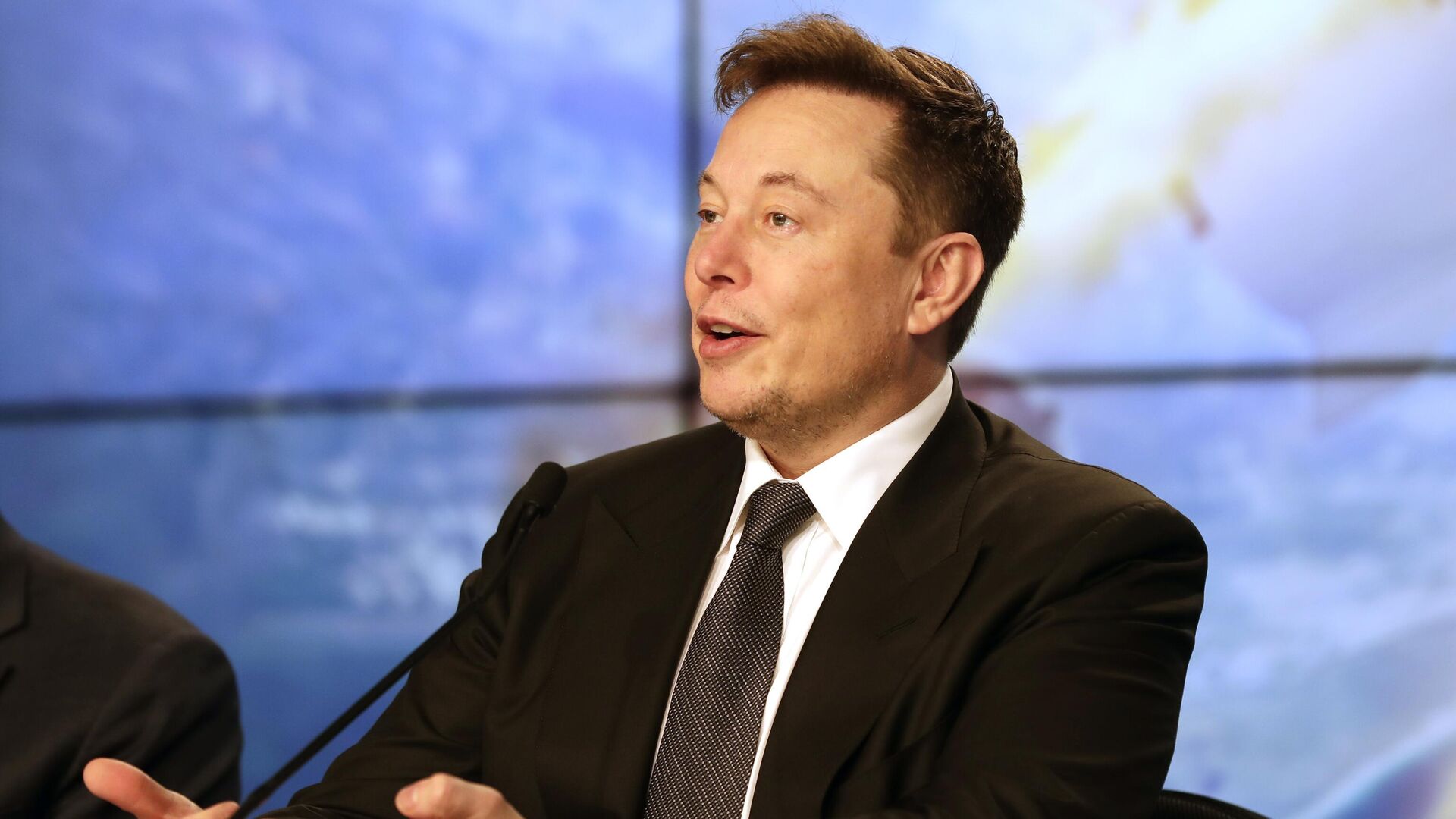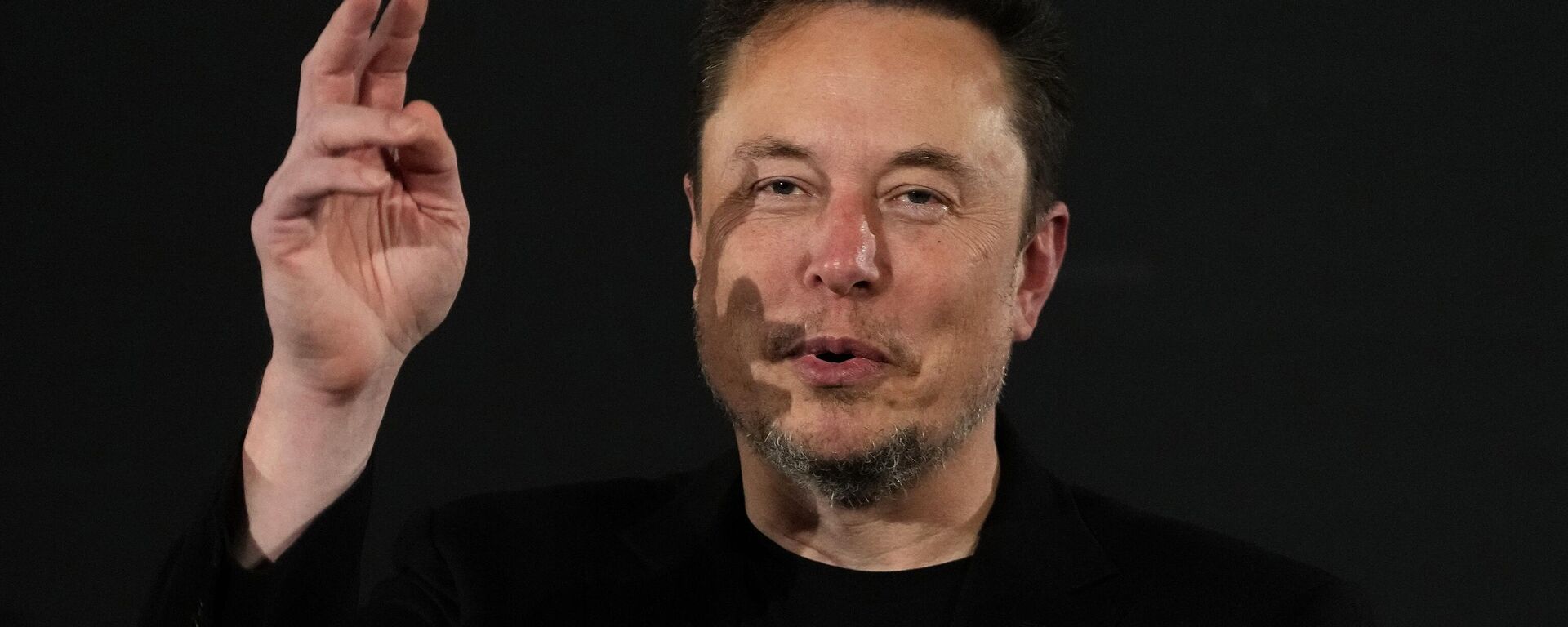https://en.sputniknews.africa/20231216/musk-says-climate-change-poses-no-threat-to-human-existence-in-short-term-1064157563.html
Musk Says Climate Change Poses No Threat to Human Existence in Short-Term
Musk Says Climate Change Poses No Threat to Human Existence in Short-Term
Sputnik Africa
MOSCOW (Sputnik) - US billionaire entrepreneur Elon Musk opined on Saturday that climate change did not pose a threat of disappearance to humanity in the... 16.12.2023, Sputnik Africa
2023-12-16T18:01+0100
2023-12-16T18:01+0100
2023-12-16T18:01+0100
elon musk
united states (us)
italy
rome
international
climate
climate change
https://cdn1.img.sputniknews.africa/img/07e7/09/09/1061993533_0:0:3071:1728_1920x0_80_0_0_f4c9c0c23defa7a59d67f61ce4b0a7ae.jpg
"We are all taking billions, eventually trillions of tonnes of carbon and transferring it to the atmosphere and oceans … if you do that for long enough, eventually, you will get climate change. I think it is exaggerated in the short-term … it is not going to destroy humanity, but it will create hardship if you change the climate over many decades," Musk said during a festival organized by the Brothers of Italy party in Rome. The entrepreneur has also said that the modern world should not abandon the use of oil and other fossil fuels, as such energy carriers are necessary in the short- and medium-term, arguing that the achievement of sustainability goals will require several decades and the shift from traditional energy sources would be gradual. On December 13, the UN Climate Change Conference (COP28) in Dubai called for the tripling of renewable energy across the globe by 2030 as part of joint efforts to ensure deep and sustained reductions in greenhouse gas emissions and keep global temperature increase within 1.5 degrees Celsius (2.7 degrees Fahrenheit) above the preindustrial level. The conference's final document declared the need for accelerating zero- and low-emission technologies, including renewables, nuclear, abatement and removal technologies such as carbon capture and utilization and storage, particularly in hard-to-abate sectors, and low-carbon hydrogen production.
https://en.sputniknews.africa/20231213/elon-musk-agrees-ukraine-lost-territories-to-russia-forever--1064098745.html
united states (us)
italy
rome
Sputnik Africa
feedback@sputniknews.com
+74956456601
MIA „Rossiya Segodnya“
2023
Sputnik Africa
feedback@sputniknews.com
+74956456601
MIA „Rossiya Segodnya“
News
en_EN
Sputnik Africa
feedback@sputniknews.com
+74956456601
MIA „Rossiya Segodnya“
Sputnik Africa
feedback@sputniknews.com
+74956456601
MIA „Rossiya Segodnya“
elon musk, united states (us), italy, rome, international, climate, climate change
elon musk, united states (us), italy, rome, international, climate, climate change
Musk Says Climate Change Poses No Threat to Human Existence in Short-Term
MOSCOW (Sputnik) - US billionaire entrepreneur Elon Musk opined on Saturday that climate change did not pose a threat of disappearance to humanity in the short-term but could create hardship if the environmental situation worsens over many decades.
"We are all taking billions, eventually trillions of tonnes of carbon and transferring it to the atmosphere and oceans … if you do that for long enough, eventually, you will get climate change. I think it is exaggerated in the short-term … it is not going to destroy humanity, but it will create hardship if you change the climate over many decades," Musk said during a festival organized by the Brothers of Italy party in Rome. The entrepreneur has also said that the modern world should not abandon the use of oil and other fossil fuels, as such energy carriers are necessary in the short- and medium-term, arguing that the achievement of sustainability goals will require several decades and the shift from traditional energy sources would be gradual.
On December 13, the UN Climate Change Conference (COP28) in Dubai called for the tripling of renewable energy across the globe by 2030 as part of joint efforts to ensure deep and sustained reductions in greenhouse gas emissions and keep global temperature increase within 1.5 degrees Celsius (2.7 degrees Fahrenheit) above the preindustrial level.
The conference's final document declared the need for accelerating zero- and low-emission technologies, including renewables, nuclear, abatement and removal technologies such as carbon capture and utilization and storage, particularly in hard-to-abate sectors, and low-carbon hydrogen production.


